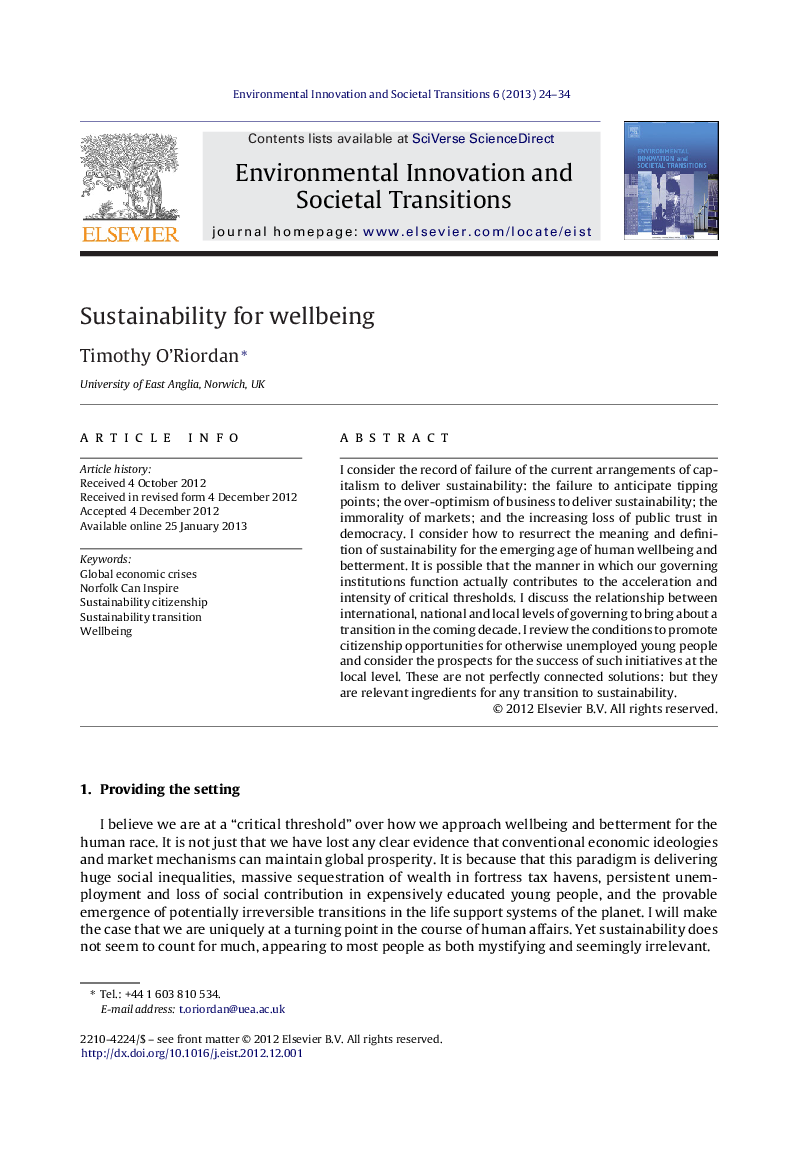| Article ID | Journal | Published Year | Pages | File Type |
|---|---|---|---|---|
| 108281 | Environmental Innovation and Societal Transitions | 2013 | 11 Pages |
I consider the record of failure of the current arrangements of capitalism to deliver sustainability: the failure to anticipate tipping points; the over-optimism of business to deliver sustainability; the immorality of markets; and the increasing loss of public trust in democracy. I consider how to resurrect the meaning and definition of sustainability for the emerging age of human wellbeing and betterment. It is possible that the manner in which our governing institutions function actually contributes to the acceleration and intensity of critical thresholds. I discuss the relationship between international, national and local levels of governing to bring about a transition in the coming decade. I review the conditions to promote citizenship opportunities for otherwise unemployed young people and consider the prospects for the success of such initiatives at the local level. These are not perfectly connected solutions: but they are relevant ingredients for any transition to sustainability.
► Conventional economic growth delivery mechanisms are failing to produce higher household incomes and jobs for the young. ► Any conventional growth pathways will soon hit global boundaries and social floors. ► A new economic and social paradigm based on ecological resilience and wellbeing can be devised. ► Norfolk Can Inspire is a trial for such an arrangement geared to providing citizenship experiences for the young unemployed. ► Transformation to sustainable localism set in a global and national supportive framework should be the aim of the transitions network.
